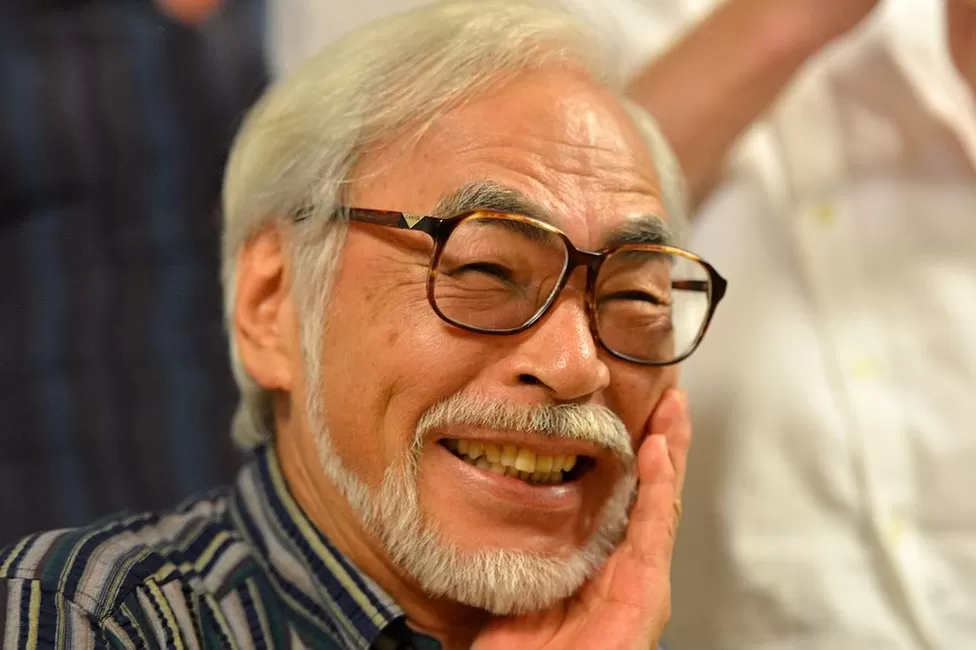On Friday, the highly anticipated film “How Do You Live” debuted in Japanese cinemas, marking the latest and potentially final work from the acclaimed animation director Hayao Miyazaki.
Hayao Miyazaki, along with the late director Isao Takahata, co-founded Studio Ghibli, a renowned animation studio that profoundly influenced the industry. Three of Miyazaki’s films, namely “Princess Mononoke,” “Spirited Away,” and “Howl’s Moving Castle,” have secured spots among Japan’s top ten highest-grossing films. His work has been a powerful inspiration for animation and live-action filmmakers in Japan and worldwide across multiple generations.
Miyazaki’s 2001 film, “Spirited Away,” earned critical acclaim, receiving the Golden Bear at the Berlin International Film Festival and winning the Academy Award for Best Animated Feature at the 75th Academy Awards. In recognition of his exceptional contributions, Miyazaki received the Academy’s Honorary Award in 2014.
Titled “How Do You Live” (Kimitachi wa Do Ikiru ka), the film draws its name from Genzaburo Yoshino’s 1937 novel. However, the film’s story is entirely original and written by Miyazaki.
The film is set in Japan during World War Two and revolves around a young boy named Mahito, whose mother tragically dies in a fire. Following the incident, Mahito’s father, who works in a factory producing fighter planes, marries his deceased wife’s younger sister, Natsuko, and relocates the family to her ancestral home in the countryside.
Filled with resentment towards Natsuko for replacing his mother, Mahito explores the house’s surroundings and stumbles upon a forbidden tower. A mysterious grey heron, capable of speech (as depicted on the film’s poster), informs Mahito that his mother is alive and trapped inside the tower, awaiting rescue. Initially dismissing the claim, Mahito changes his mind when his new stepmother disappears into the tower, and he decides to embark on a mission to save her.
Upon entering the tower, Mahito is transported to an alternate world brimming with magic, where his quest introduces him to new allies and adversaries alike.
The film showcases Miyazaki’s characteristic fascinations, idiosyncrasies, and thematic interests. Viewers can expect visual delights, such as enchanting yet peculiar creatures, visually appealing food, and breathtaking flights of imagination. Miyazaki’s hand-drawn animation exhibits the fluidity and weight that define the mastery of his craft.
Thematically, “How Do You Live” follows in the footsteps of films like “Kiki’s Delivery Service” and “Spirited Away” as a coming-of-age tale in which a child must overcome selfishness and learn the value of living for others.

“How Do You Live” also reflects aspects of the director’s personal life. Hayao Miyazaki’s father, like Mahito’s father in the film, worked for a company that manufactured parts for fighter planes. Similarly, Miyazaki’s own family experienced evacuation from the city to the countryside during the war. Furthermore, Miyazaki had a profound connection with his own mother, who greatly influenced his work and the portrayal of strong female characters in his films.
Interestingly, “How Do You Live” hasn’t generated the same level of anticipation on its release day as one would expect for a film by a director as renowned as Miyazaki. The absence of trailers, TV spots, and limited information about the film’s plot has been a deliberate strategy employed by Studio Ghibli president and producer of “How Do You Live,” Toshio Suzuki. In an interview with a prominent Japanese magazine in June, Suzuki explained that he intentionally avoided disclosing too much information to maintain audience curiosity and interest.
Also Read:
Microsoft Activision’s Bid for Call of Duty Maker Faces Blow
India CEO Faces Criticism for Choosing AI Bot Over Human Staff
A review of several cinemas in Shinjuku, a major entertainment district in Tokyo, on a Friday afternoon revealed that early morning and evening screenings were nearly sold out, while many seats were available for afternoon and late-night showings.
Anecdotally, several friends I have surveyed in the past week expressed unawareness of the impending release of a new Miyazaki film this weekend. The complete picture will emerge once the box office numbers for the weekend are released. However, the deliberate strategy may involve a slow start with the intention of building an audience through word-of-mouth recommendations in the following weeks.
Miyazaki’s final film – for real this time?
Hayao Miyazaki has made numerous announcements throughout his career about retiring from feature filmmaking, most notably in 2013 following the release of “The Wind Rises.” However, these declarations proved temporary as he began producing “How Do You Live” in 2016.
Considering the film’s seven-year production period and Miyazaki’s age (he turned 82 in January), “How Do You Live” is widely regarded as his final feature film.
While Miyazaki’s legacy remains secure, the future of Studio Ghibli is uncertain. Initially established to produce films by Miyazaki and Takahata, the studio has made several attempts to transition to the next generation with varying degrees of success.

One potential successor, Yoshifumi Kondo, who directed the well-received “Whisper of the Heart” in 1995, tragically passed away at 47. Miyazaki’s son, Goro, has directed three films at the studio, including the recent computer-animated “Earwig and the Witch.” Still, these films have not achieved the same level of financial or critical success as his father’s works.
President Toshio Suzuki has announced that Ghibli is planning its next film, and the studio has expanded into new ventures such as Ghibli Park, a unique theme park in Nagoya, Japan, that deviates from the typical Disney-style theme parks. (During the screening of “How Do You Live” I attended, I received a file folder advertising the park upon entering the theater.)
In the past decade, directors like Makoto Shinkai (“Your Name”) and Mamoru Hosoda (“Belle”) have achieved tremendous domestic box office success with their original anime IPs. Additionally, in 2020, the feature adaptation of the manga “Demon Slayer” surpassed “Spirited Away” to become Japan’s highest-grossing film of all time. Regardless of the future of Ghibli itself, Miyazaki’s lasting legacy may lie in his role in establishing animated films as Japan’s beloved form of entertainment.

